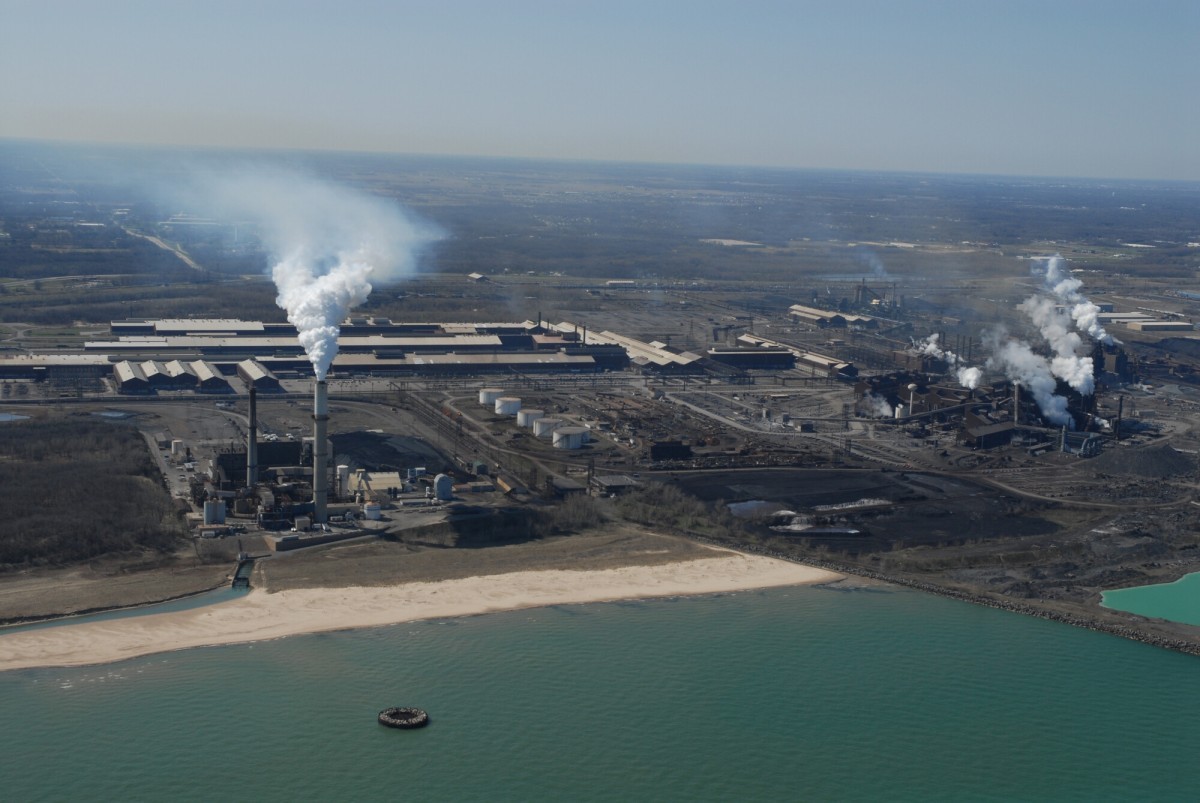Press Release: Cleveland-Cliffs Announces Plans for 255 Million Tonnes of Climate Pollution
Potential reline of Burns Harbor, Indiana blast furnace and SunCoke agreement raise climate concerns, Cleveland-Cliffs is pursuing IRA funding for carbon capture and hydrogen
Ariana Criste, Senior Communications Strategist at Industrious Labs

FOR IMMEDIATE RELEASE
Cleveland-Cliffs Announces Plans for 255 Million Tonnes of Climate Pollution
Potential reline of Burns Harbor, Indiana blast furnace and SunCoke agreement raise climate concerns, Cleveland-Cliffs is pursuing IRA funding for carbon capture and hydrogen
April 27, 2023 - U.S. steelmaker Cleveland-Cliffs announced last week that it plans to reline a blast furnace at its Burns Harbor, Indiana facility in 2025 and extend its coke purchase agreement with Suncoke at its Indiana Harbor, Indiana plant for 12 years. Based on EPA data, Industrious Labs estimates that these two investments will result in 255 million tCO2e over the lifetime of the projects, equivalent to operating approximately 68 coal-fired power plants for one year. In addition to climate pollution, the Burns Harbor and Indiana Harbor steel plants are the highest industrial emitters of health-harming pollutants NOx, SO2 and PM2.5 in Indiana.
“Indiana steel mills should seize the opportunity to be international leaders in clean steel production and green hydrogen instead of risking further job losses with outdated technologies,” said Chris Chyung, Executive Director of Indiana Conservation Voters. “The Bipartisan Infrastructure Law and Inflation Reduction Act offer titanic federal incentives to modernize steelmaking, create thousands of high wage union jobs, and clean up pollution in disadvantaged communities in Lake & Porter Counties.”
Blast furnace relining is a major maintenance investment required to continue to operate integrated steel plants. Blast furnaces make iron from iron ore at high temperatures using coke made from coal, and this process releases significant climate and health-harming pollution. Investing in a reline is a major economic and climate decision that will extend the plant's life by an estimated 18 years.
“Cleveland-Cliffs’ plan to reline the polluting blast furnace at Burns Harbor is a setback for the climate, potentially locking the company into high-emission technologies for decades,” said Erika Thi Patterson, auto supply chain campaign director at Public Citizen. “Blast furnaces are a major source of air pollution and Cleveland-Cliffs’ decision to continue using outdated technology is a missed opportunity to reduce emissions.”
Blast furnaces, a fourteenth-century technology, are being replaced globally by proven technology that can run on green hydrogen produced by renewable energy and water. Europe has announced the most planned and current investments, but other countries like Japan and South Korea are catching up. Steelmakers in the United States have not announced plans for new, clean steel facilities. Cleveland Cliffs underscored that it has no plans to build new direct reduced iron facilities in its Q1 Earnings Call.
“From relining blast furnaces to burning hydrogen produced by fossil fuels, dirty steelmaking is a dead end that will lock us into fossil fuel dependence and worsen pollution in communities that are already pollution-burdened in Northwest Indiana,” said Ben Inskeep, Program Director at Citizens Action Coalition of Indiana. “Cleveland-Cliffs must commit to rapidly transitioning to clean steelmaking in Indiana for our health, environment, and economy."
The Inflation Reduction Act and Bipartisan Infrastructure Bill include a historic $6.3 billion of funding to help decarbonize heavy industry through the Department of Energy’s (DOE) Industrial Demonstration Program. Using green hydrogen for steelmaking would lead to the most emissions reductions and align with the DOE's vision for the Industrial Demonstration Program, which is prioritizing projects that offer solutions for deep decarbonization. Cleveland Cliffs announced plans to pursue federal carbon capture and hydrogen funding at its existing facilities. However, the details of those plans, including the fuel source for the hydrogen, have not been announced.
“Carbon capture and sequestration (CCS) technology is not an appropriate first step and will not be sufficient to modernize steelmaking, ensure long-term employment of workers, or meet the industry’s climate goals,” said Yong Kwon, Senior Policy Advisor at the Sierra Club. “True investment in clean steel means transforming facilities or building new ones that don’t use fossil fuels.”
In addition to climate pollution, blast furnaces release toxic air pollution into neighboring communities, including heavy metals and particulate matter, leading to adverse health outcomes. Residents in the communities bordering Cleveland-Cliffs facilities have expressed concerns about the air pollution impacts of its investments in fossil-fuel-powered steelmaking.
“As a lifelong resident of Dearborn, Michigan, I have seen firsthand the negative impacts of air pollution from Cliffs' steel mills. Cliffs will continue to drive air pollution wherever it operates so long as they keep burning coal in their facilities,” said Samra'a Luqman, community activist. “Investing in clean steelmaking is a sound business decision and good for the health of our communities. This relining demonstrates that Cliffs is not committed to moving forward in that direction.”
###
About Industrious Labs:
Industrious Labs is focused on scaling campaigns and building a movement to clean up heavy industry through network and capacity building, research and analysis, data-driven campaigns and sharp communications.